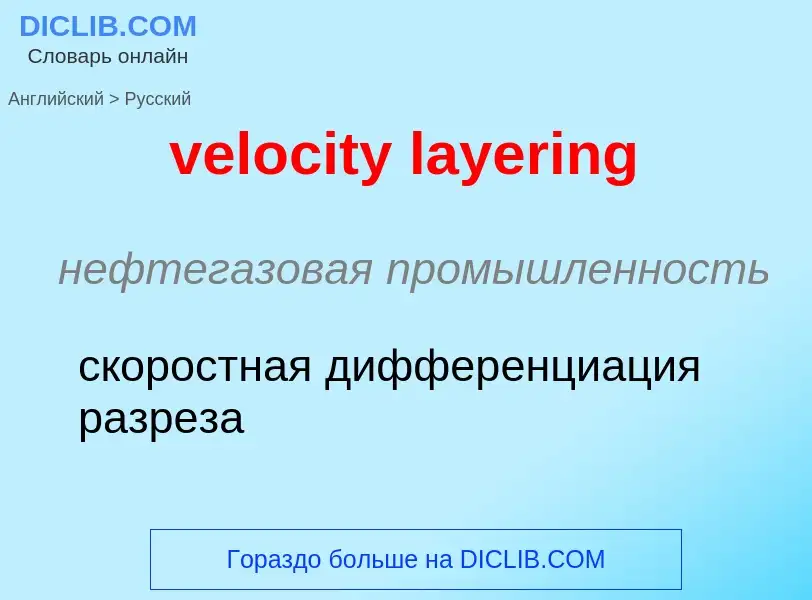Translation and analysis of words by ChatGPT artificial intelligence
On this page you can get a detailed analysis of a word or phrase, produced by the best artificial intelligence technology to date:
- how the word is used
- frequency of use
- it is used more often in oral or written speech
- word translation options
- usage examples (several phrases with translation)
- etymology
velocity layering - translation to russian
нефтегазовая промышленность
скоростная дифференциация разреза
общая лексика
воздушный отводок
Definition
Wikipedia
.png?width=120)
Layering is the process whereby the branch of a tree, or other plant, produces roots and is separated from the original plant, becoming a new, separate plant. Layering is utilized by horticulturists to propagate desirable plants.
Natural layering typically occurs when a branch touches the ground, whereupon it produces adventitious roots. At a later stage the connection with the parent plant is severed and a new plant is produced as a result.
The horticultural layering process typically involves wounding the target region to expose the inner stem and optionally applying rooting compounds.
In ground layering or simple layering, the stem is bent down and the target region is buried in the soil. This is done in plant nurseries in imitation of natural layering by many plants such as brambles which bow over and touch the tip on the ground, at which point it grows roots and, when separated, can continue as a separate plant. In either case, the rooting process may take from several weeks to a year.
There are two methods of air layering, which do not involve burying the stem. In ring air layering, the exposed wound is covered in a growth medium such as sphagnum moss, and wrapped in a material such as plastic. The roots grow into the medium and after a period of time, the stem is separated from the original plant. Tourniquet air layering has a similar method to air layering, except that instead of creating a wound, a wire is wrapped around the stem and the ends are twisted until it is very tight.
Layering is more complicated than taking cuttings, but has the advantage that the propagated portion continues to receive water and nutrients from the parent plant while it is forming roots. This is important for plants that form roots slowly, or for propagating large pieces. Layering is used quite frequently in the propagation of bonsai; it is also used as a technique for both creating new roots and improving existing roots.

.png?width=200)
![Air layering of ''[[Limonium dendroides]]'' Air layering of ''[[Limonium dendroides]]''](https://commons.wikimedia.org/wiki/Special:FilePath/Limonium dendroides air layering.jpg?width=200)

